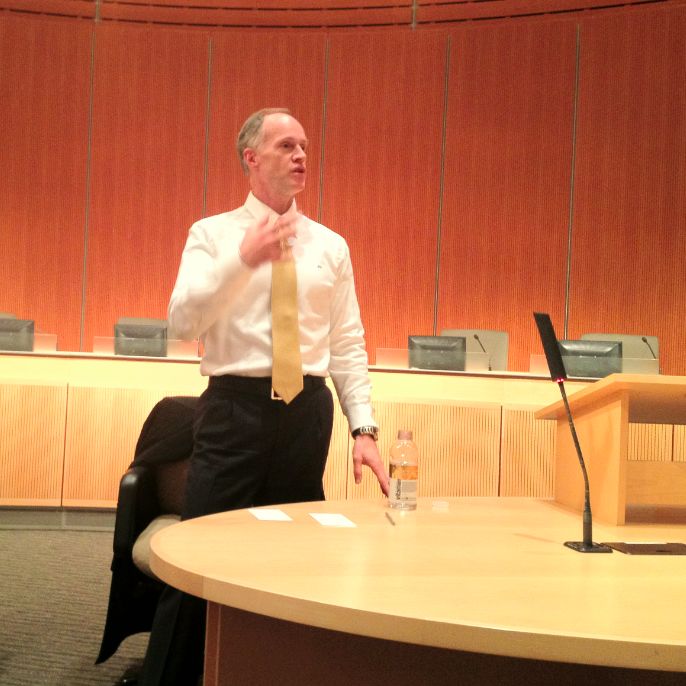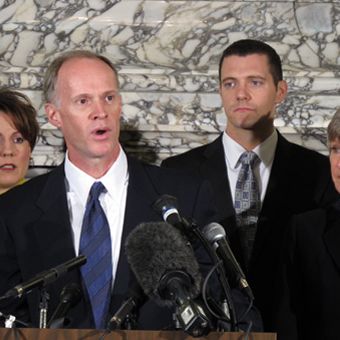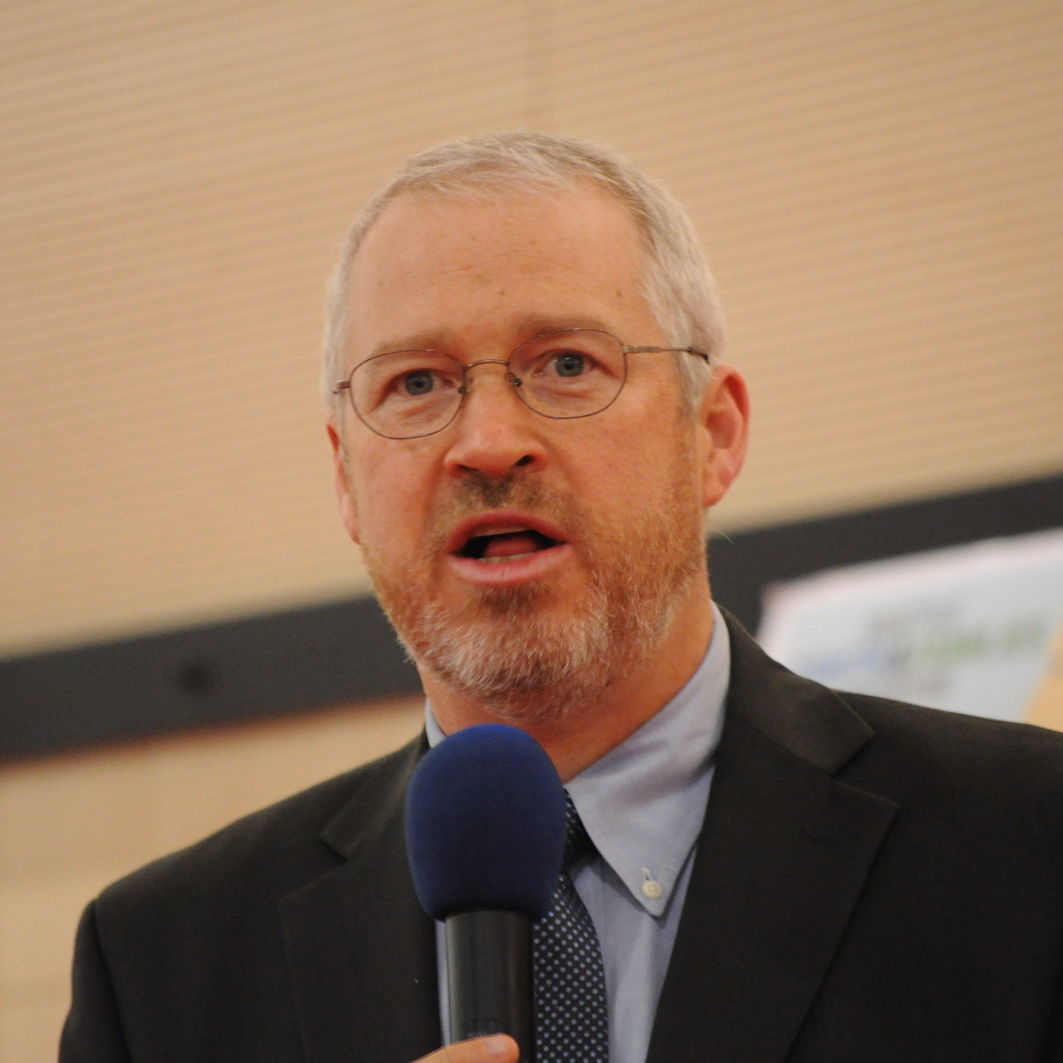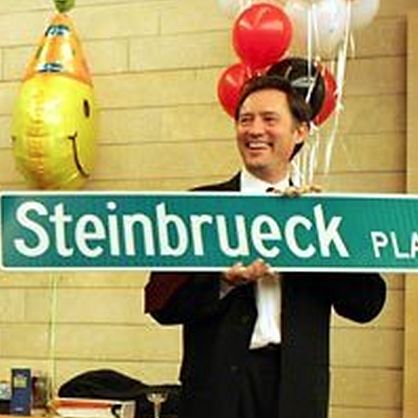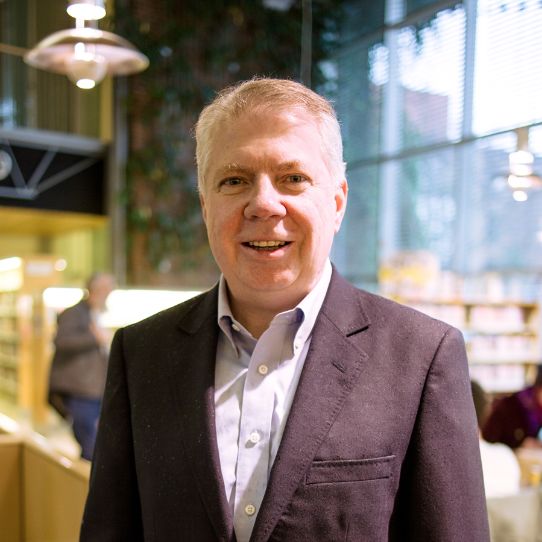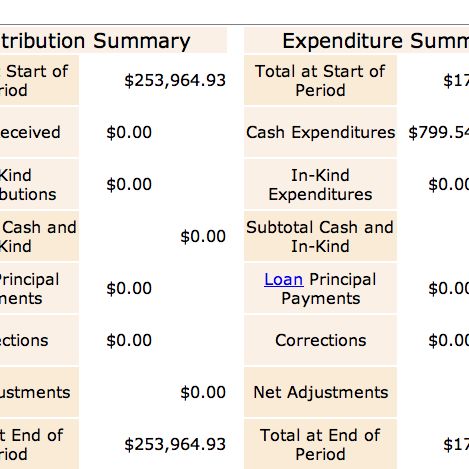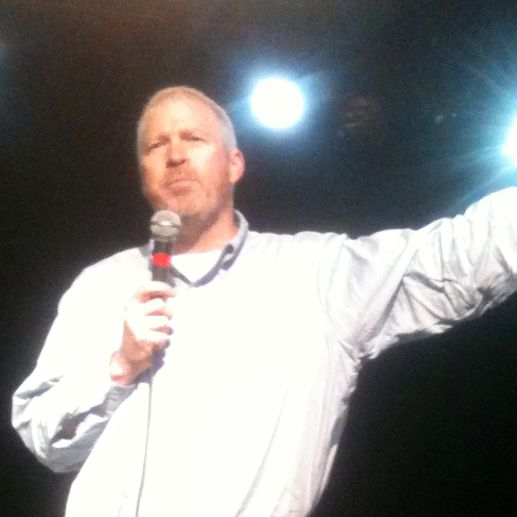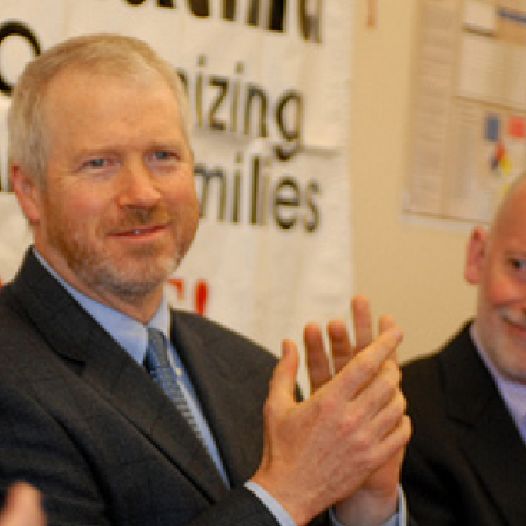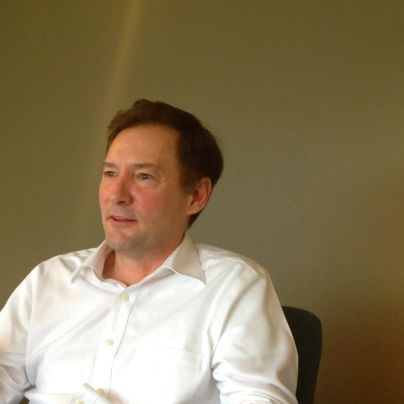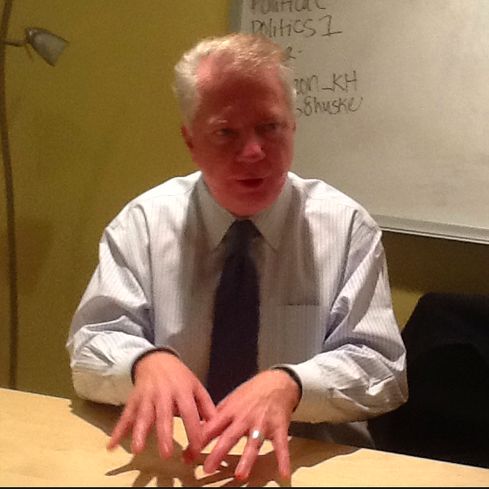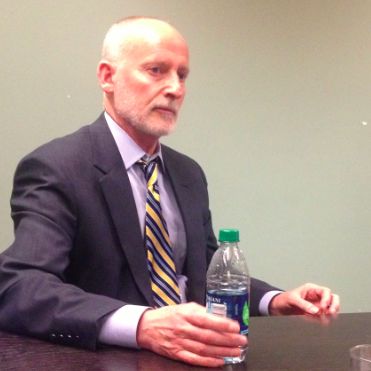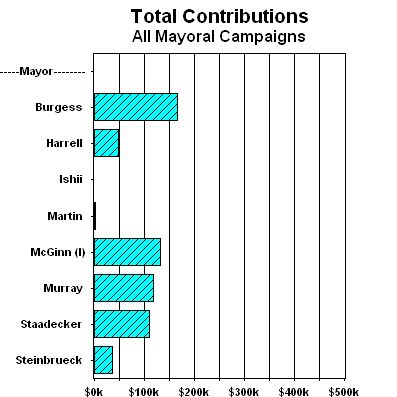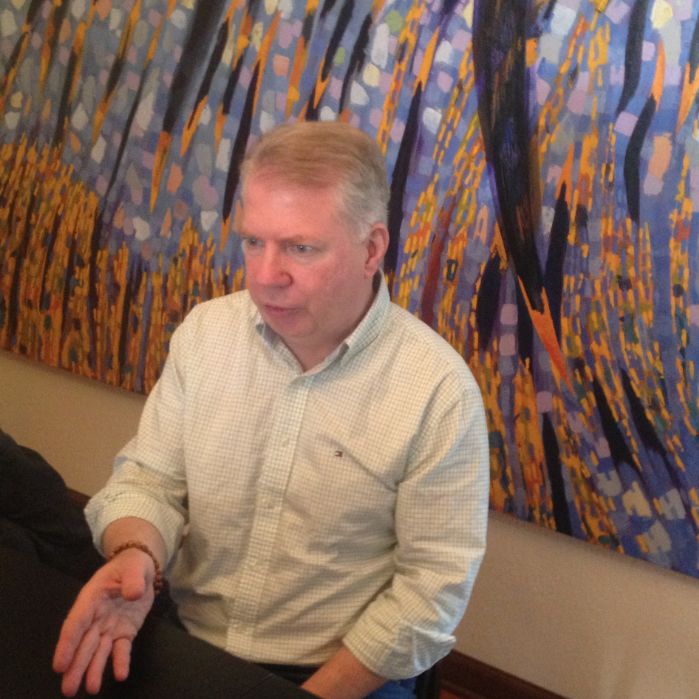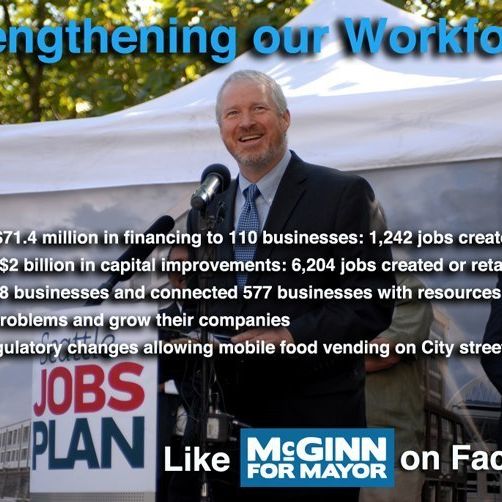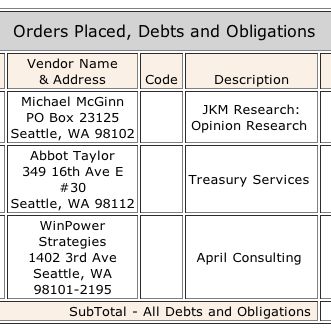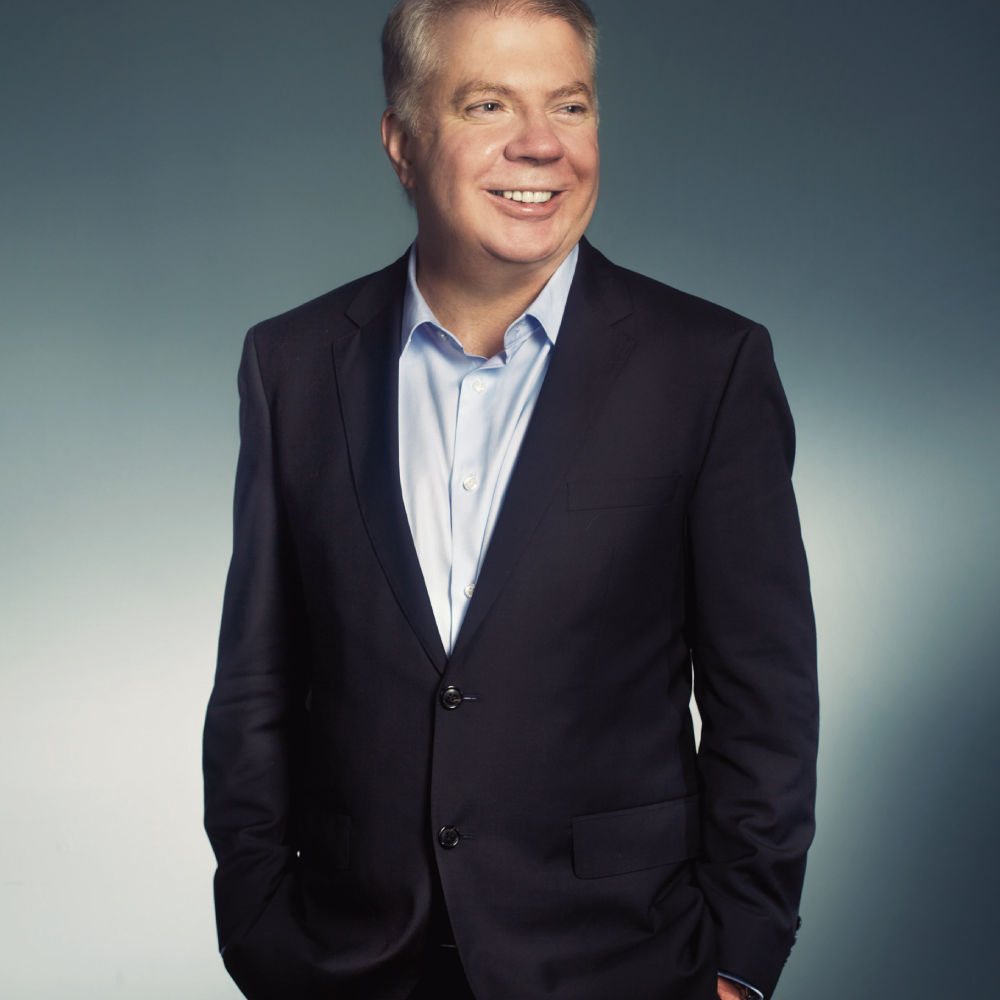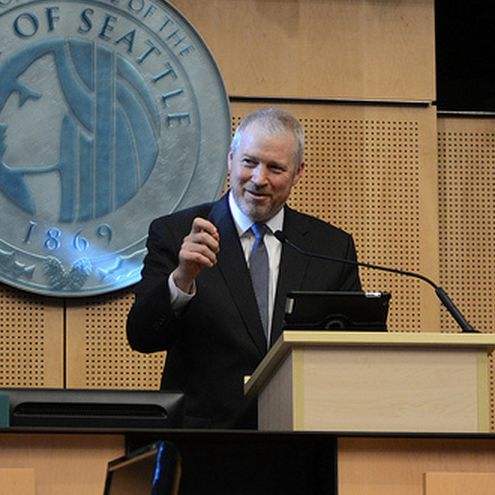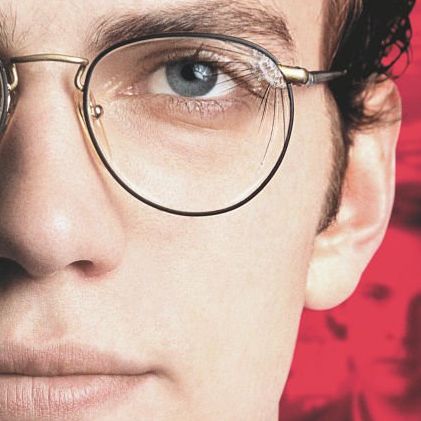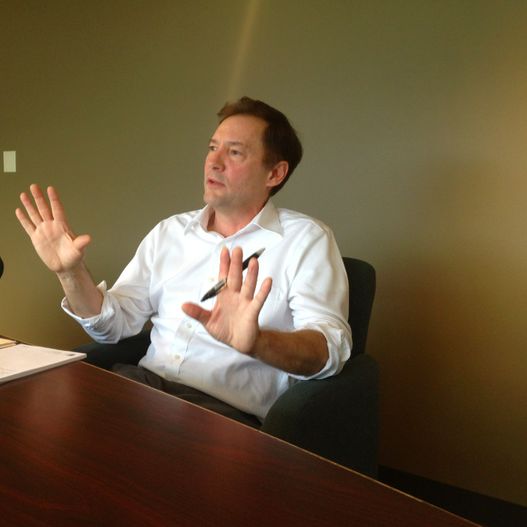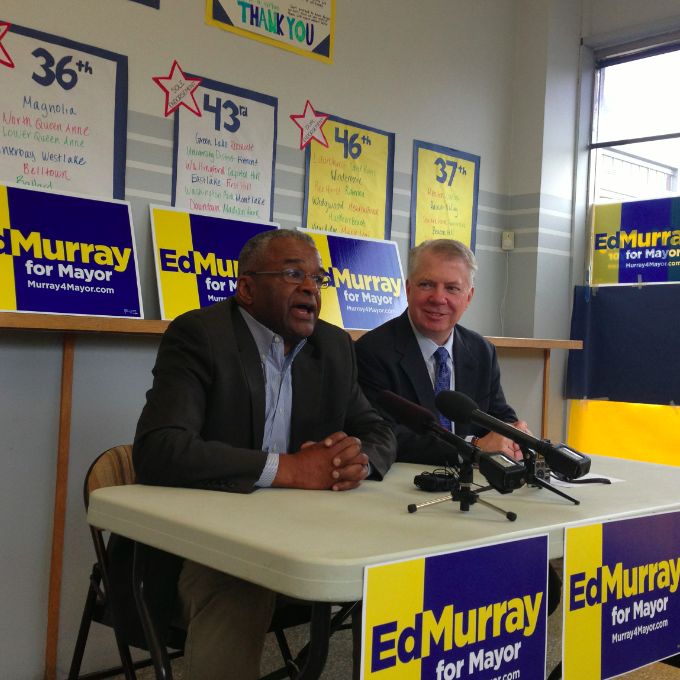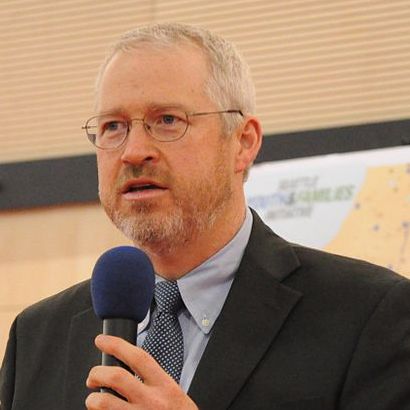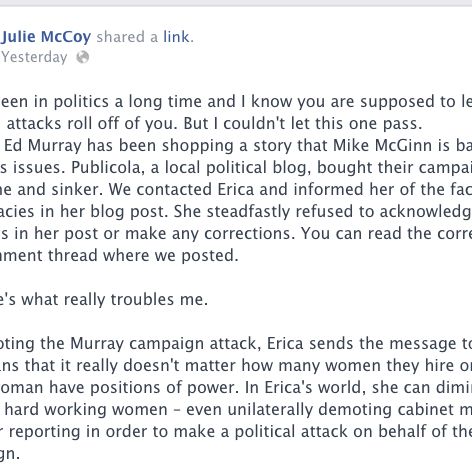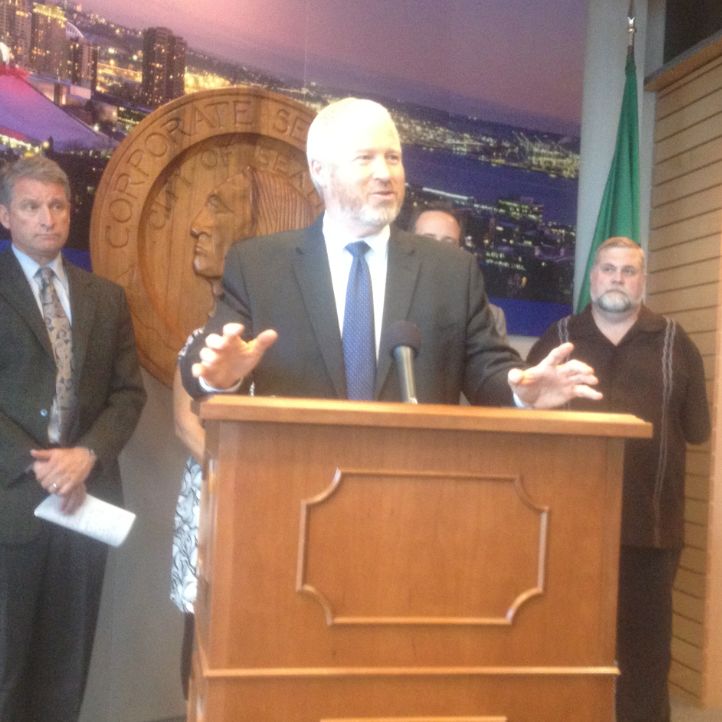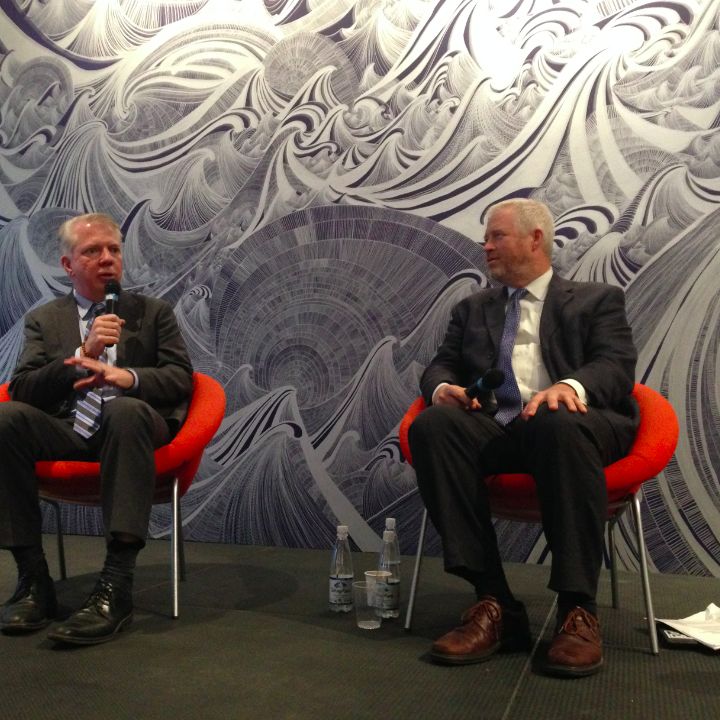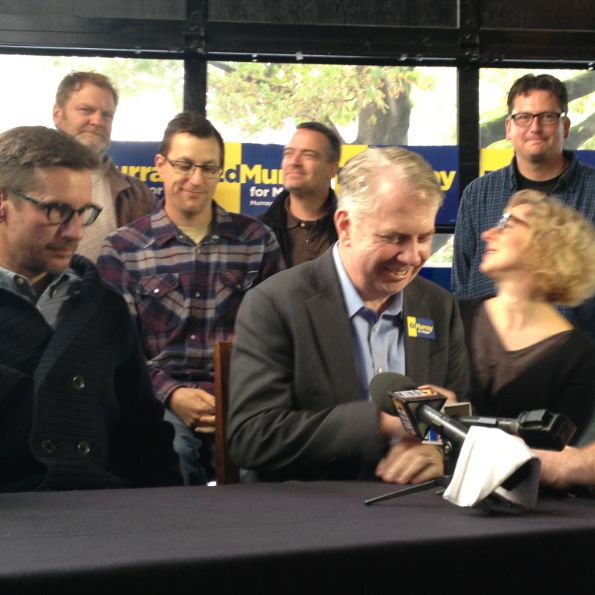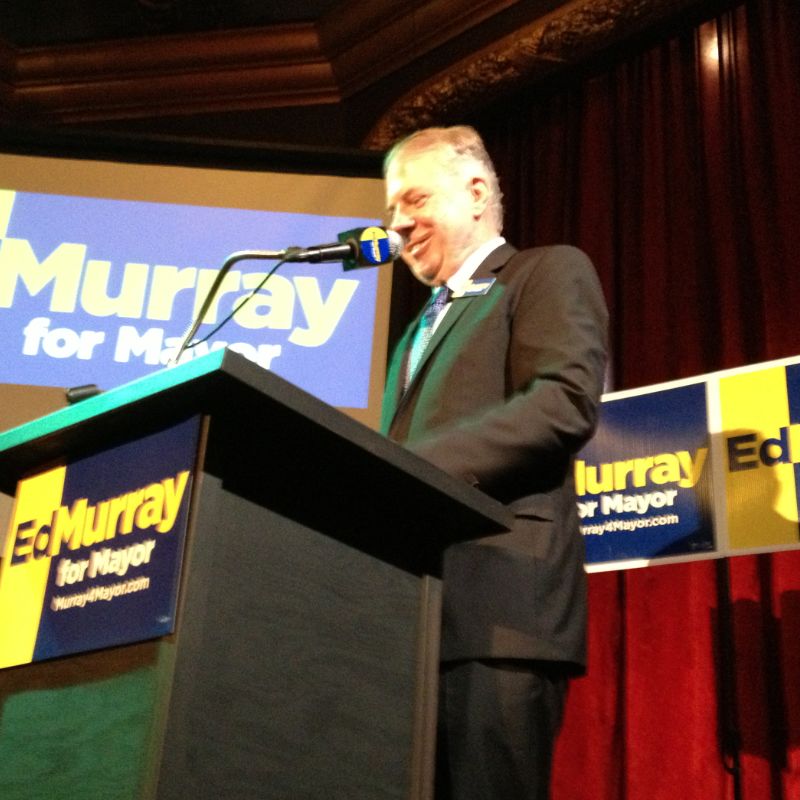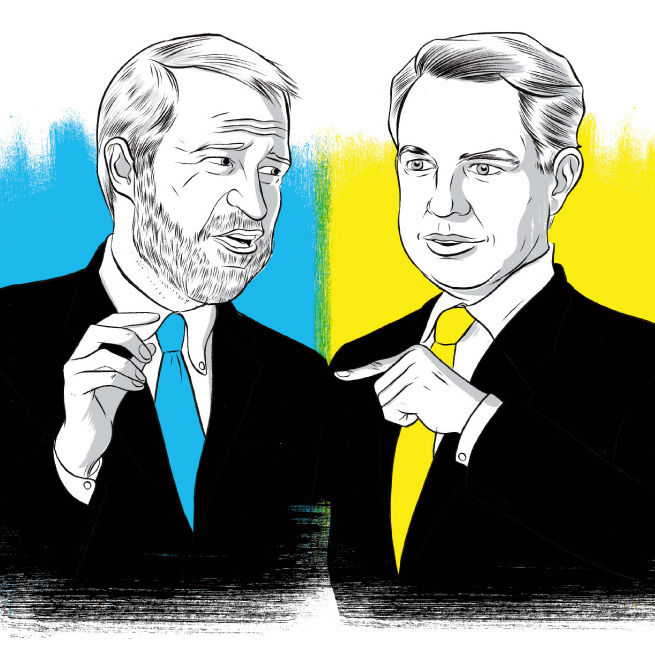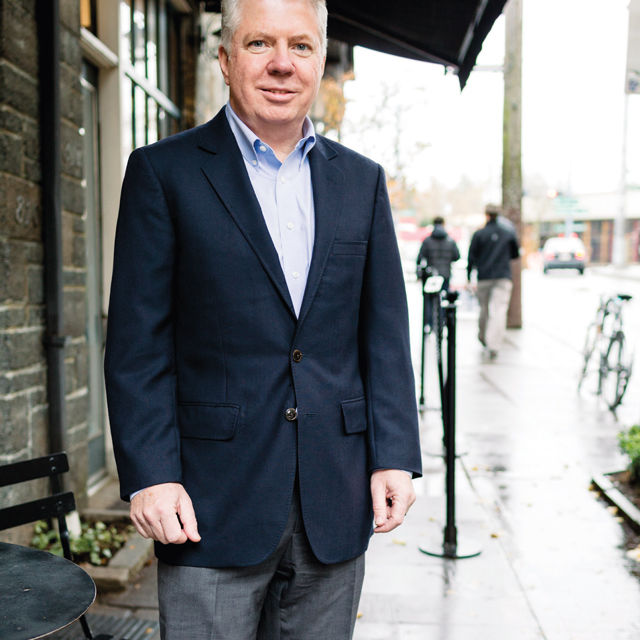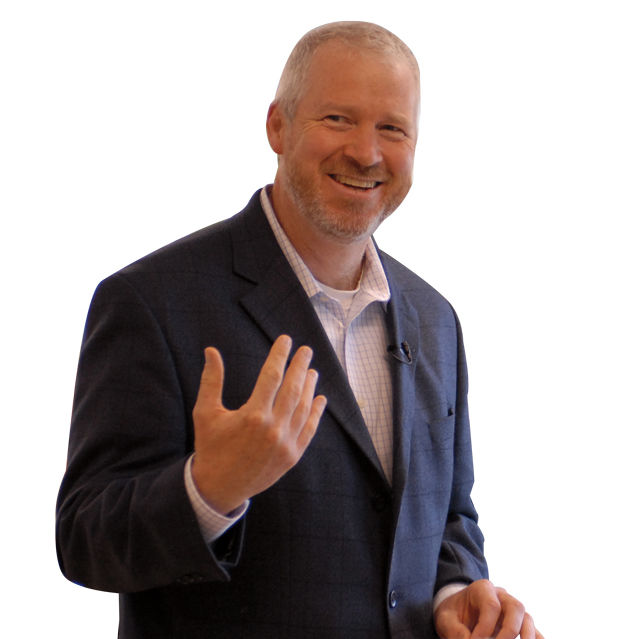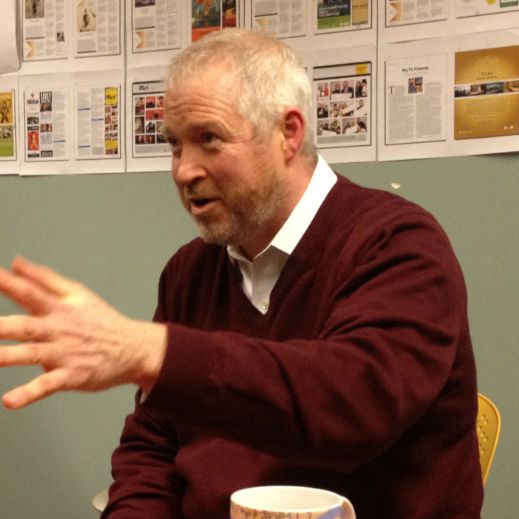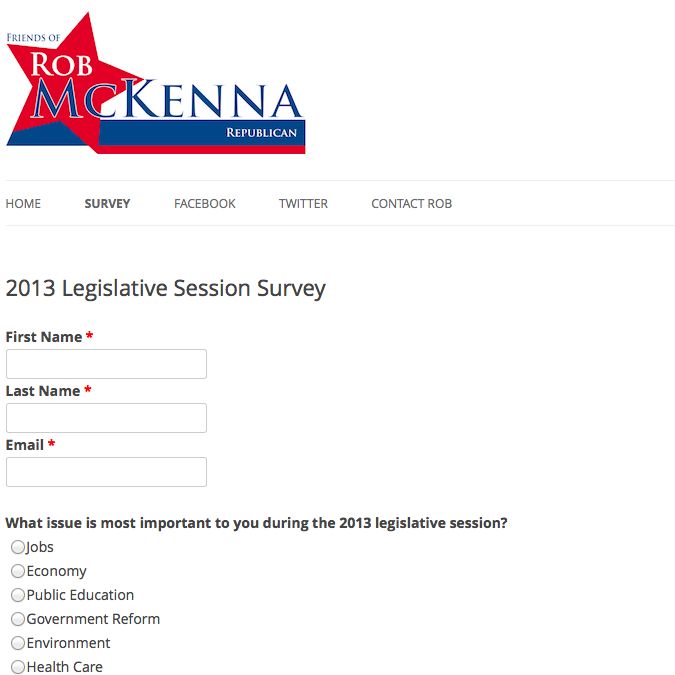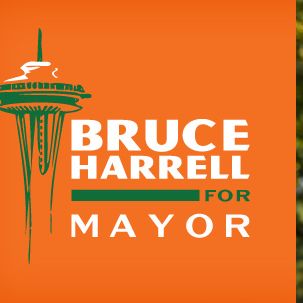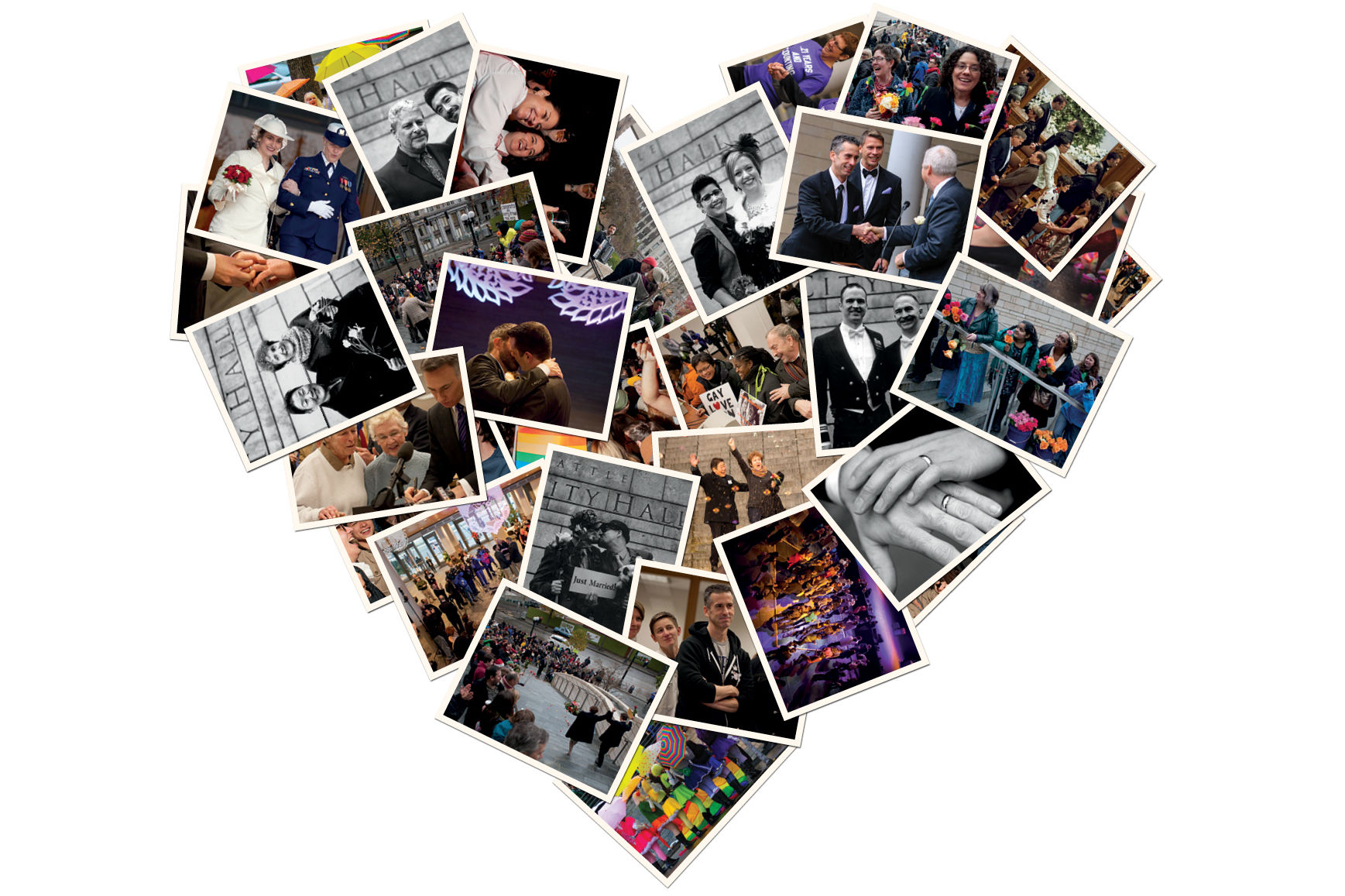Meet the Candidates: Tim Burgess
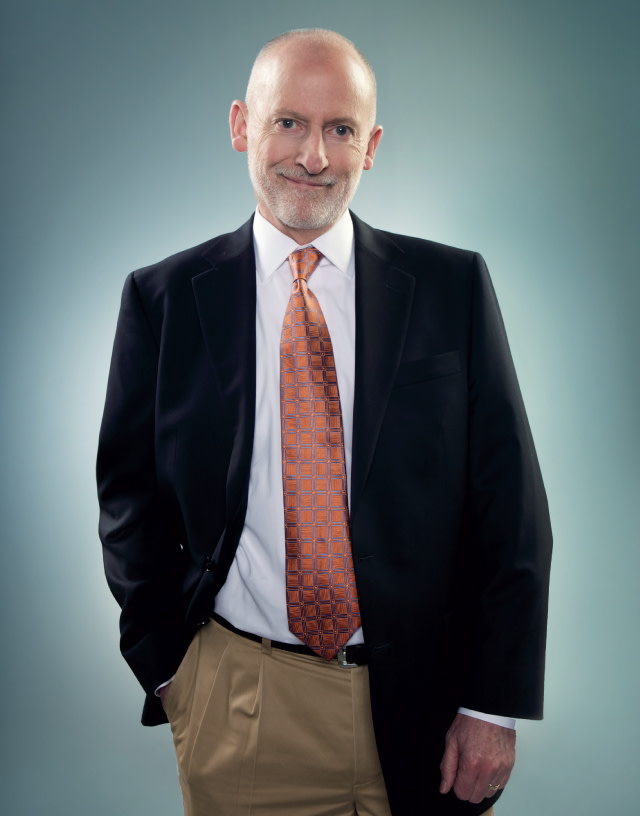
Tim Burgess, photographed in studio on January 30, 2013
Image: Brandon Hill
City council member Tim Burgess (along with Bruce Harrell, he’s one of two council members hoping to unseat mayor Mike McGinn) is, fairly or unfairly, regarded as the candidate for “conservative” Seattleites: people who believe in law and order, who support harsher restrictions on “broken windows” crimes like panhandling and graffiti, and who support a “fix it first” approach to infrastructure over ambitious—some would say fanciful—proposals like citywide light rail.
In 2011, Burgess, who won his council seat in 2007 after a tough battle with then-incumbent David Della, resisted the ordinance requiring companies to provide paid sick leave until he orchestrated a compromise that the business community was happier with. He pushed legislation to crack down on aggressive panhandling (Mayor McGinn vetoed the legislation).
Burgess was also the chair of the public safety committee in the runup to the Department of Justice’s damning report on police conduct, which has led to DOJ oversight of the Seattle Police Department.
The editors of PubliCola at Seattle Met sat down with Burgess in March.
PubliCola: We’ve had some trouble understanding your professional trajectory. Can you explain your arc—from doing poverty relief work overseas to being a journalist, to being a cop, to being a consultant, to running for city council?
Tim Burgess: My family was very poor. We lived in North Capitol Hill on the east side of Volunteer Park, and my mom worked as a cook at Meany Middle School. That was when Seattle Public Schools had real kitchens. It was a working-class, Catholic and Jewish mixed community. I would leave Stevens Elementary and walk to Meany after school because all the kids of the cooks would come there after school and we’d eat leftovers. When I was 12, my parents had to move because they lost their house to foreclosure. My dad sold office supplies door to door downtown.
PubliCola: So you were a teenager in the ’60s—that was a crazy time. What was your interaction with that era? Were you a hippie or a square?
Burgess: I was a nerdy square and, in fact, at Lincoln High School—I would not want to admit this—I was on the AV squad. We had projectors, 16-millimeter film, and I knew how to wind up cords on my arm and stuff.
PubliCola: Were you an antiwar kid? Or did all that stuff pass you by?
Burgess: I was not involved in a lot of that stuff. Right out of Lincoln, I got a job at KJR Radio. I remember covering now–King County Council member, then–Black Panther Larry Gossett. Former mayor Norm Rice and I were both radio journalists and we ran around town together. I covered a lot of police issues. There were a lot of bombings and shootings in the city, a lot of civil disorder, and then I covered the [1970s police] corruption trials. And then Wes Uhlman was elected mayor. He was a young state legislator who ran on a reform plank: “I’m going to clean up city hall.” I was very enamored with that and wanted to be part of that. So I quit KJR and joined the police department. [Also a student at the time, Burgess dropped out of UW eight credits short of a degree. —Eds.]
My time in the police department was very eye-opening, in terms of the effects of violence, injustice, poverty. I had a pretty sheltered life up to that point, and being a police officer on the street is not a sheltered life. There was a spiritual issue there, too, and I really felt motivated and interested in global poverty issues. So I quit the police department and went to work for a humanitarian organization, and spent the next seven years doing antipoverty work around the world. In 1985, I started my communications consulting firm to serve nonprofit organizations and help them communicate their messages. And I ran that for 20 years. And then I was going to retire and I thought that would be really boring. So I talked to my wife and daughters and said, “I think I’m going to run for city council.”
PubliCola: You call yourself a progressive, but as a consultant, you represented Concerned Women for America, a group that opposes gay and women’s rights. How do you justify that? Why did you choose to represent them?
Burgess: We took CWA as a client in the early 2000s. And after a while, we realized that this maybe is not the type of client we want. We had complaints from employees, especially our gay employees. So we developed an opt-out program so that they didn’t have to work on that client’s assignments if they didn’t want to, and I eventually persuaded my business partner that we don’t want to represent this organization, and that took a while—a couple of years—and we resigned the contract.
PubliCola: Your efforts to ban aggressive panhandling weren’t successful. If you were elected mayor, what would you propose to deal with the current problems with street disorder?
Burgess: I would fundamentally reform how we do policing in Seattle and how we approach criminal justice to shift from what has traditionally been the American response to crime, which is after the fact—you call 911, they come—to a very proactive prevention orientation. We see that in many progressive cities in our country that are doing that very, very well, so that police are viewed as partners. As opposed to coming into neighborhoods to do things to people, they are partners with the community to create positive outcomes for safety and security.
PubliCola: On the subject of police reform: McGinn resisted the DOJ plan and the choice of the police monitor. One way you could look at that is that he’s getting the backs of the rank and file, because they agreed with him. If you’re talking to a rank and file officer, how do you explain to them that this is a good thing?
Burgess: Lots of rank and file police officers have talked to me, and my firm conviction is that 98 percent, 99 percent of the women and men who serve our city as police officers want to do the right thing. They want to serve with distinction. They want their work to be successful. And they are desperate for clear leadership and direction. It’s kind of like they’re leaning in, waiting, and it’s not there. So I don’t agree that the rank and file is resistant to change at all.
PubliCola: You’ve rolled out a very back-to-basics transportation plan. Mayor McGinn is presenting a more urbanist proposal focusing on light rail and mass transit. This is a city that has voted for light rail over and over again. Are you ceding a major issue to him?
Burgess: I’ve been a huge advocate of light rail, of the streetcar network, and expanding it. But the system has to work as a whole, and I think we have neglected some of those basics, like street and bridge maintenance and repair. And what I was pointing out is, as we do these good things, like light rail and the streetcar, we dare not forget the basics. Bicyclists don’t like potholes, drivers don’t, and transit buses don’t. You’ve got to take care of all that at the same time.
We’re going to have to renew Bridging the Gap [the 2006 transportation levy] in 2015, and if the voters don’t have the trust and confidence that the leaders of the city can spend that money wisely, that money is at risk. We’ve had three and a half years now of failed leadership, of divisive leadership—a mayor who chooses conflict over collaboration. We can’t afford to have that continue. And that’s going to be the central issue of this campaign.
PubliCola: What McGinn policy decisions will you reverse if you’re elected?
Burgess: I would be taking a very different approach on the whole police reform issue and a lot of other policies. I didn’t like his execution on the new proposed sports arena. [The city council] analyzed his proposal and said there’s no way we’re going to pass this, and eight of us signed a letter to Chris Hansen and said, we’re sorry, this is not going to be approved unless you can come back and renegotiate with us.
And we’ve done that on the mayor’s proposed rezone in South Lake Union, which was wholly inadequate on balancing public and private benefits.
PubliCola: Why do you think former mayor Greg Nickels lost, and what do you learn from that?
Burgess: I think Greg kind of lost touch with the street and the people. I think he made an error when he gave the administration a B-plus on the [2008] snowstorm. I think if he had said something along the lines of, this was really tough and we made some mistakes and we have a lot to learn, people would have been very forgiving. But I think the combination of maybe losing touch a bit and that kind of worked against him.
PubliCola: You’ve said you’re a born-again progressive. Can you explain that?
Burgess: I left the police department to go work at antipoverty programs. That’s a little unusual. Cops don’t often do that. I did that because of core motivations deep in my soul to work with the poor. And that was back in the late 1970s.
PubliCola: What did you used to believe that you no longer believe?
Burgess: I was raised in a very conservative, fundamentalist home, and I moved away from that. I didn’t do that overnight. So yes, my views politically, religiously, and in many, many other ways have changed over time. I’ll give you an example. I strongly supported the death penalty. As I saw how our country administers it, I no longer believed we can do it fairly and justly, and that changed my opinion. And I also saw the evidence that the death penalty is not a deterrent to homicide. I was invited by the coalition that opposes the death penalty to testify about the legislation in Olympia that would ban the death penalty.
PubliCola: That’s legislation that your opponent state senator Ed Murray has been pushing.
Burgess: Good for him. He’s an excellent legislator.
Published: May 2013

